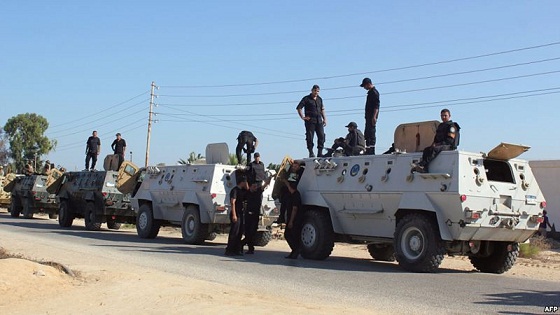GAZA CITY: Senior Hamas leader Ismail Haniyeh said on Wednesday the Islamist group would accept a peace deal with Israel if the Palestinian people approved it in a referendum.
His statement appeared to signal a shift in the group’s long-standing policy of refusing to accept either Israel’s legitimacy or any peace treaty negotiated by Palestinian President Mahmoud Abbas.
Hamas "will respect the results of a referendum even if the results conflict with Hamas’ positions," Haniyeh said at a rare press conference with foreign journalists.
"We accept a Palestinian state with full sovereignty on the land occupied in 1967 with Jerusalem as its capital and a solution to the issue of refugees," he added.
However, an Israeli government official pointed out that Haniyeh never explicitly said Hamas would be prepared to end its conflict with Israel in such a case.
"They never say that a Palestinian state living alongside Israel will be enough for them, but rather that they will accept it," he said, speaking on condition of anonymity. "Notice that he never says that they will then be willing to live with Israel after that."
"Ultimately they are committed to an Islamist Palestinian state that will replace Israel," the official added.
Hamas has frequently derided negotiations with Israel as a waste of time and Haniyeh said he remained unconvinced that peace talks would result in an agreement.
"There won’t be a solution with two states on the land … Israel wants the land, peace, and security with us and this is something impossible."
Hamas won parliamentary elections in 2006, defeating Abbas’s Fatah party. Long-standing tensions between the rivals boiled over in June 2007, when the Islamist group’s forces routed Fatah and seized control of Gaza.
All attempts at reconciliation between the two sides, most of them mediated by Egypt, have failed. Fatah and Hamas have accused each other of undermining trust by persecuting political rivals in the territory under its control.
Abbas restarted direct talks with Israel in September with the aim of reaching a peace agreement within a year.
But negotiations broke down three weeks later after Israel refused to renew a 10-month moratorium on settlement construction in the West Bank that expired on Sept. 26.
Hamas has frequently criticized Abbas for agreeing to negotiations with Israel.
"Negotiations with the occupation will only lead to failure," Hamas spokesman Sami Abu Zuhri told AFP in March, after Arab foreign ministers meeting in Cairo backed the idea of indirect US-brokered talks.
"The alternative is for Abbas to return to the patriotic option, to what the Arabs support and the Palestinians desire, the option of steadfastness and resistance," Abu Zuhri said.
Haniyeh also fielded questions Wednesday on militant groups in Gaza, where Israel and other observers fear groups like Al-Qaeda are gaining a foothold.
"Al-Qaeda is not present in the Gaza Strip, but there is resistance to the occupation," he said, adding that Hamas works to ensure that "the main resistance groups do not act outside of Gaza or Palestine."
He also called for the resumption of negotiations on the release of Israeli soldier Gilad Shalit, who has been held in Gaza since his kidnap by Palestinian militants during a cross-border raid in June 2006.
He said Hamas wanted to reach a deal involving an "honorable exchange" of prisoners.
Shalit has not been seen by outside observers or by Red Cross representatives since his capture in a deadly raid along the Gaza border.
Hamas, which participated in Shalit’s kidnap along with several other Gaza militant groups, is seeking the release of hundreds of Palestinian prisoners in exchange for freeing the soldier.

